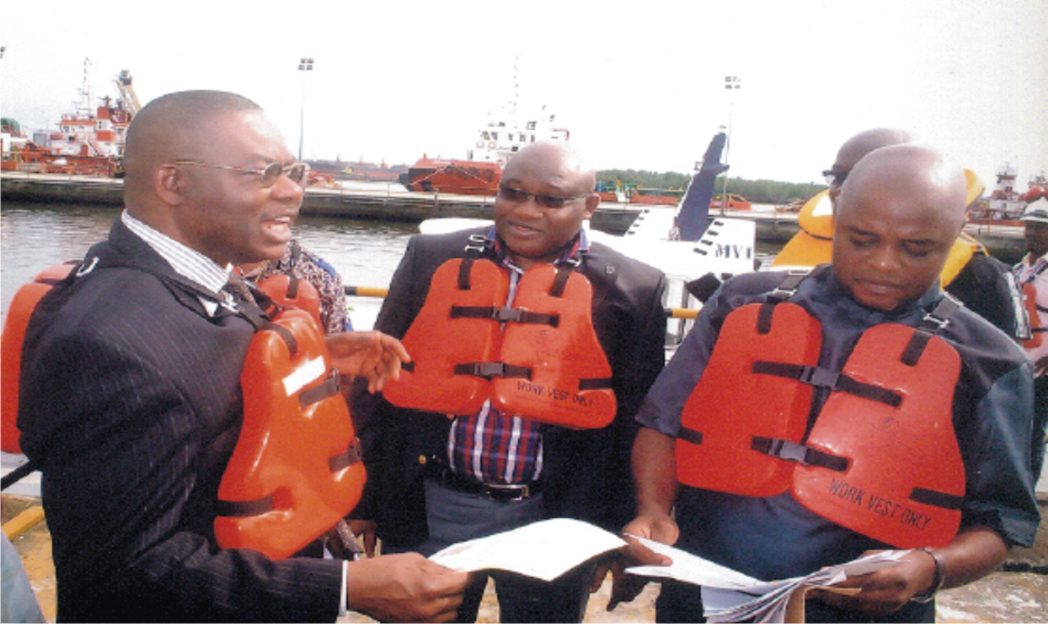Maritime
Shippers’ Council Stays Action On Tariffs Reversal
The Nigerian Shippers’
Council (NSC) has said it would comply with a Federal High Court order which restrained it from implementing a notice reversing storage charges at the seaports.
The Deputy Director, Public Affairs of the NSC, Mr Ignatius Nweke told our correspondent in Lagos that it would not do anything to undermine the judiciary.
“Yes, as a law-abiding government agency, we will abide with the court order,” he said.
It will be recalled that members of the Association of Shipping Line Agencies (ASLA) had on last Friday, secured a court injunction restraining the NSC from acting upon a notice it published.
The notice indicated a reduction in the shipping lines’ agency charges among others.
The members of the association include, Alraine Shipping Agencies, Cross Marine Services, CMA CGM Delmas, Comet Shipping Services, Grimaldi Agency and Gulf Agency.
The others are Hull Blyth Nigeria Ltd, Lagos and Niger Shipping Agencies, Maersk Nigeria Ltd, Mediterranean Shipping Company, Mitsui OSK Lines, PIL Nigeria Ltd and Sharaf Shipping Agency.
The suit number FHC/L/CS/1646/2014 was filed on behalf of ALSA and its members by a Senior Advocate of Nigeria (SAN), Mr. Chidi Ilogu.
Justice Ibrahim Buba, who granted the order, had earlier granted a similar order in favour of the Seaport Terminal Operators Association of Nigeria (STOAN).
The order was to restrain the Council from implementing a notice reversing storage charges at the nation’s seaports.
Buba gave his ruling on an ex-parte motion brought before him on behalf of the terminal operators by their counsel Mr Femi Atoyebi (SAN) and Mrs Funke Agbor.
He granted an injunction restraining the NSC and/or its agents from implementing the reversal order pending determination of the substantive suit.
He adjourned the matter to November 10 for further hearing.
It will also be recalled that the NSC had on Wednesday last week, published an advertisement announcing the reversal of storage charges at the ports.
NSC also ordered an increase in the free storage period at the port from three days to seven days.
The council equally directed shipping companies to reduce their shipping line agency charges from N26,500 to N23,850 per TEU and from N48,000 to N40,000 per FEU.
It also directed shipping agencies to refund container deposits to importers and agents within 10 working days after the return of the empty containers.

L-R: General Manager, Sustainable Development, SPDC, Mr. Nero Osayande, Govts and Communities Relations Manager, Bayelsa and Delta, Mr. Evans Krukrubo, with Chairman Agbidiama CT. Hon. Emmanuel Fungewei during the commissioning of Agbidiama Landing Craft and SPDC. Marine Base, Kidney Island Port Harcourt, recently. Photo: Egberi .A. Sampson
Maritime
Inefficiency, corruption bane of Regional Trade,Says NACCIMA Boss

Maritime
Stakeholders Advocate Legal Framework For NSW Project

Maritime
Customs To Impose 3% Penalty On Commercial Banks Over Delay In Remittances Of Collected Revenue

-

 Featured3 days ago
Featured3 days agoFubara Redeploys Green As Commissioner For Justice
-

 Sports19 hours ago
Sports19 hours agoAFCON ’25: Osimhen Not Worried By Yekini Comparison, Pressure
-

 Business19 hours ago
Business19 hours agoKALCCIMA PROMISES KALABARI ECONOMIC GROWTH, INAUGURATES NEW EXECUTIVES
-

 Sports19 hours ago
Sports19 hours agoOgoni Nation Cup : Coach Praise Players In spite 2-0 Loss
-

 Sports19 hours ago
Sports19 hours agoChelsea Set To Part Ways With Maresca?
-

 Sports19 hours ago
Sports19 hours agoRemo Stars set for Ikenne return
-

 Politics19 hours ago
Politics19 hours agoYou Have No Power To Drop Me, Ekiti PDP Candidate Tells INEC
-

 Sports19 hours ago
Sports19 hours agoSoname Calls For NPFL referees demotion





